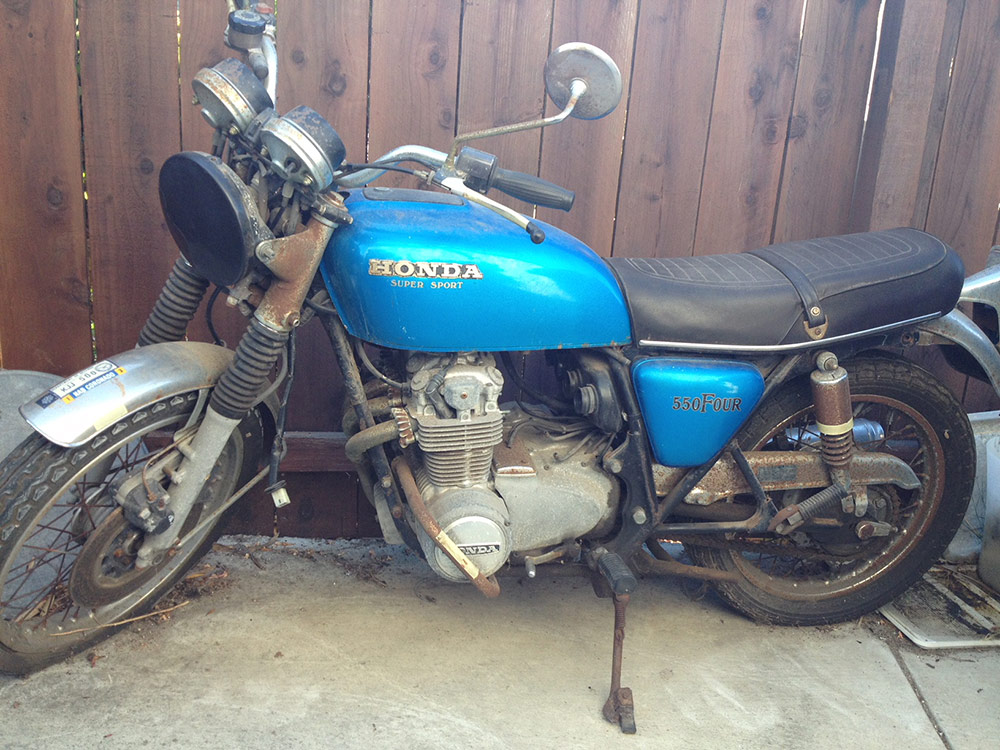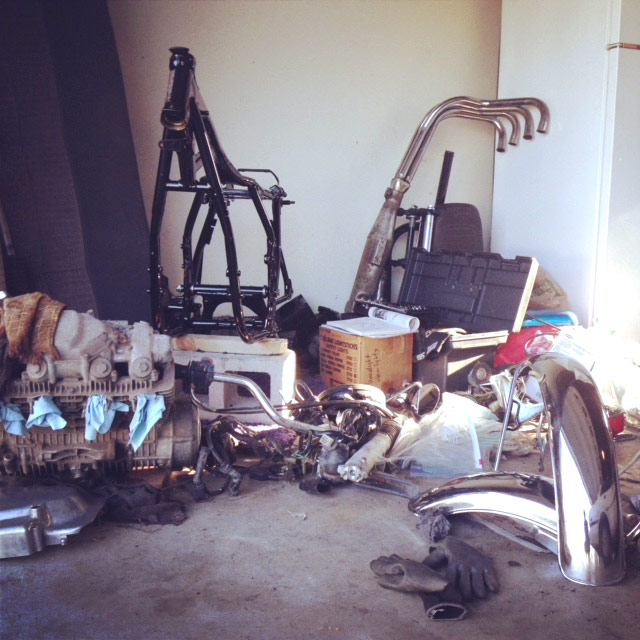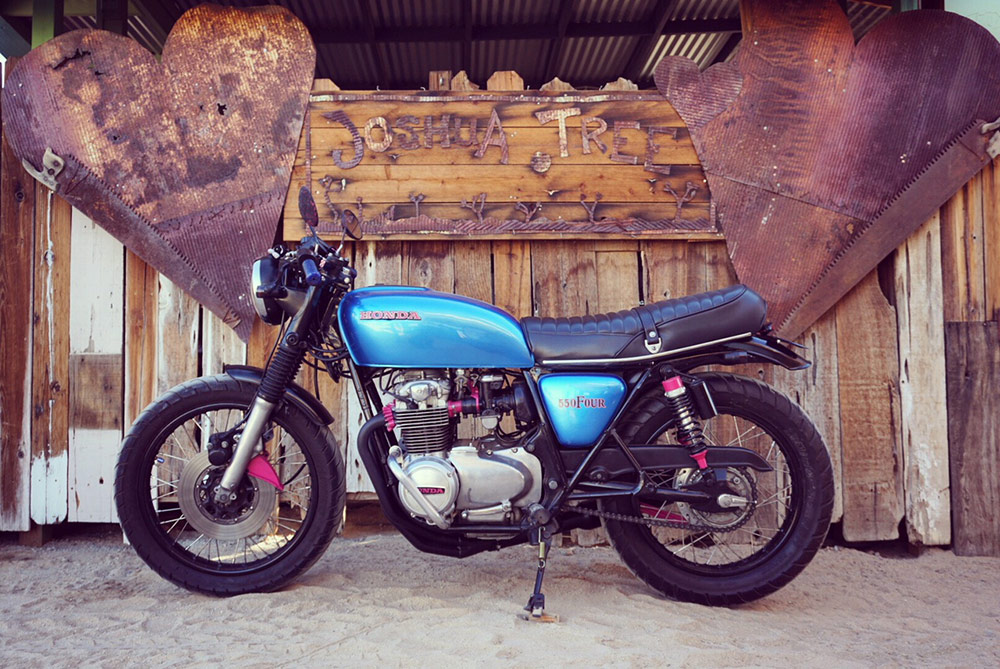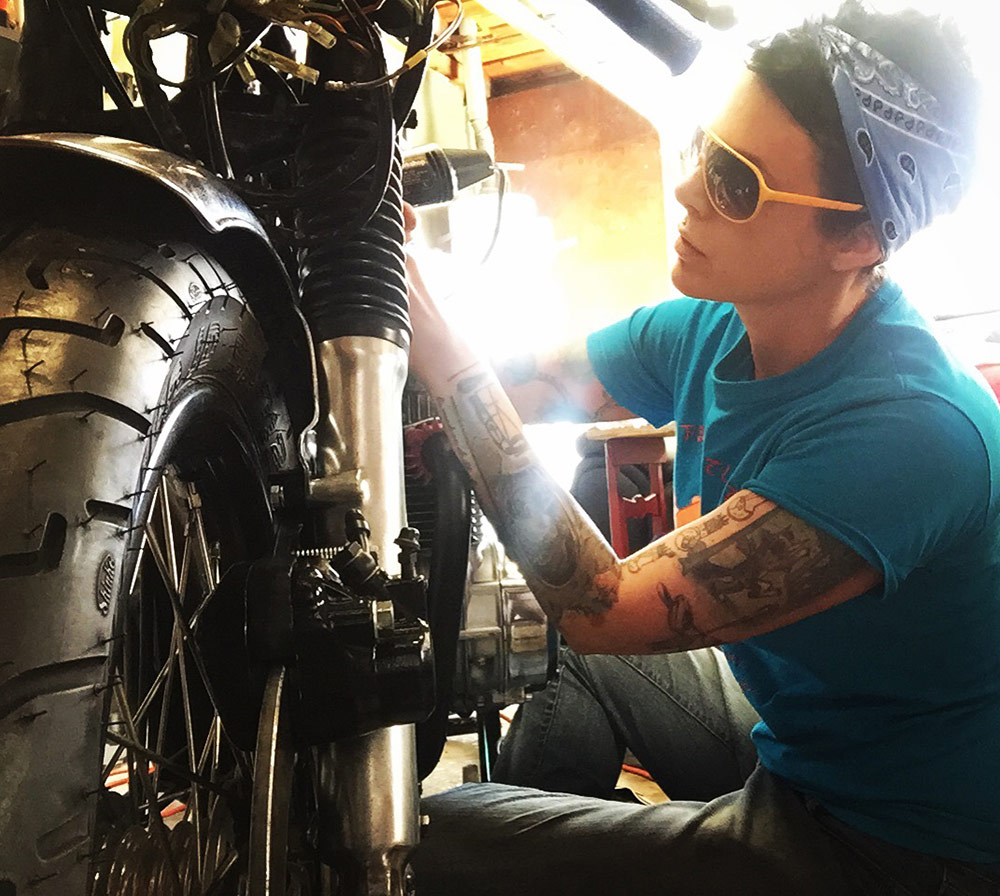Ellen Wright’s 1976 Honda CB550F
Sundays were special days in the garage of the Wright family home. While Mrs. Wright worked on gardening prep projects, her 30-something daughter, Ellen, was busy tinkering on a 1976 Honda CB550F. Mrs. Wright used to ride on the back of the bike when she was six months pregnant with her daughter. The bike was a reminder of a bygone time in her life, when she was still dating her husband, and now she gets to relive some of that youth by watching Ellen try to bring it back to life.
The Honda had been sitting under a tarp at the family’s San Diego home since the early 90s. Ellen’s brother spent a little time with it but never got beyond removing the carburetors “and not plugging up the engine ports!” Ellen jests. The original owner (their father) tried to sell it for $250 until one prospective buyer said it wasn’t worth even that.
“It was a rusted heap,” Ellen said. “I decided it was my turn to have a go at the moto and I somehow mustered this magical combination of naïveté, confidence, and stubbornness. I had never used a socket wrench, much less undertaken any sort of mechanical endeavor.”
Wright started riding when she was 20 because it made for easy parking in downtown San Diego. The Honda Nighthawk 250 she bought first was only supposed to be a temporary bike while she learned to ride better. One year turned into about a dozen when she finally decided to take on dad’s old 550 that she had nicknamed “Arnold” (even though the bike is a female).
“I was very fortunate to meet a friend of a friend who’s been building Hondas since before I was born. We had a great system: he’d come over for an hour or so when I needed muscle or help with something more delicate. Once we did that he’d rattle off all the things I could do next. I’d write them all down and tackle them one by one, calling or sending pictures if I ran into trouble, and I’d see him again in 6-8 weeks. I relied heavily on the manual.”
Wright had the engine and wiring rebuilt professionally but, even then, she ran into unrelenting problems that left Arnold either on a tow truck or being pushed along the side of the freeway. After four months Wright discovered that the cam shaft had been flipped. How she was even able to put 100 miles on the bike will always remain a mystery. “I spent months not knowing what was wrong, testing everything, buying new batteries, pulling the stator and rotor and having them tested. This was a very trying time. I started to fear I’d put all this time and money and love into something that wasn’t going to work.”
After 3.5 years of off and on work (and $6,000), Wright finally had a new commuter bike. There were overwhelming days and there were days where she spent five hours sanding a part that ended up not being used at all. “I learned to be comfortable with anxiety and ignorance, two of my least favorite things, and to appreciate them as necessary aspects of growth. There’s no shame in not knowing how to do something— no one pops into the world knowing how to make a motorcycle. The best advice I got before starting was from my dad. He told me whenever he was doing maintenance he reminded himself that humans put the bike together, so it was within his capabilities to work on it.
In the end, it’s another Honda, one that some believed was lost forever, that is now back on the road. We’re so proud to call Ellen a customer.
DCC parts Used
- Mirrors (customized with pink paint & lace)
- Gauges
- Handlebars
- Exhaust
- Turn signals
- Regulator/rectifier
- Headlight
Instagram:@ellles_bellls
Dime City salutes the independent builders whether you’re on build number one or 100.
Want to see your bike featured here? Click here for info.
(via Dime City Cycles)










